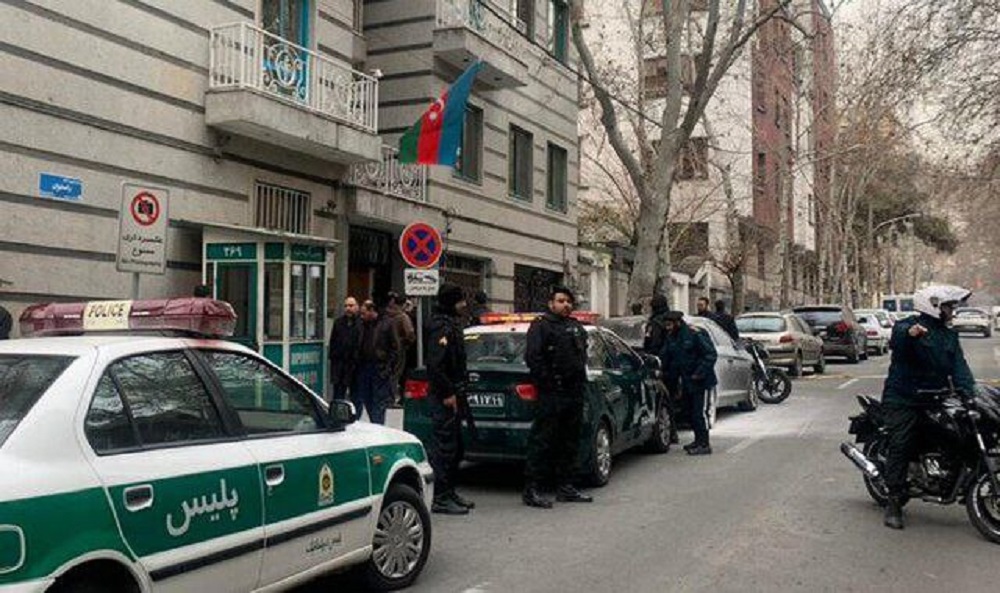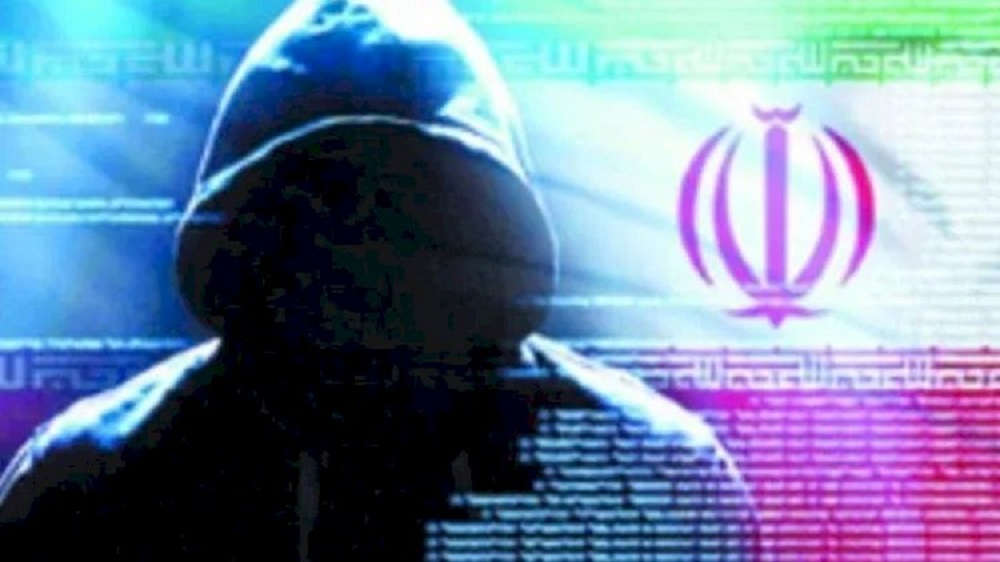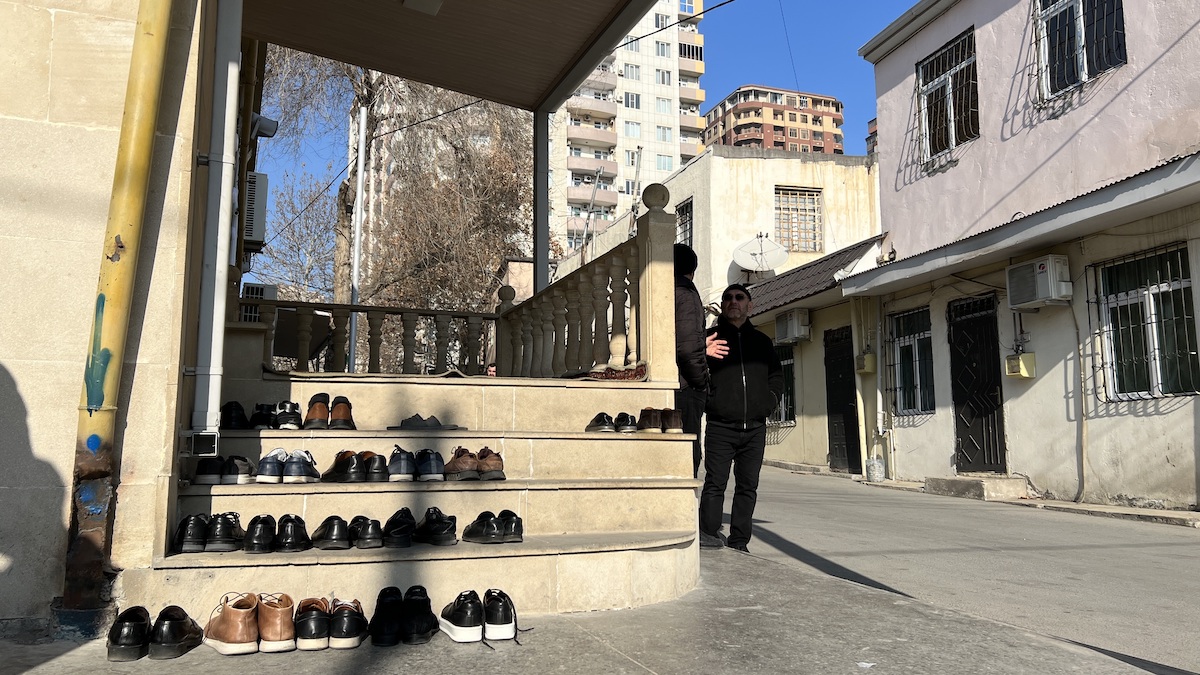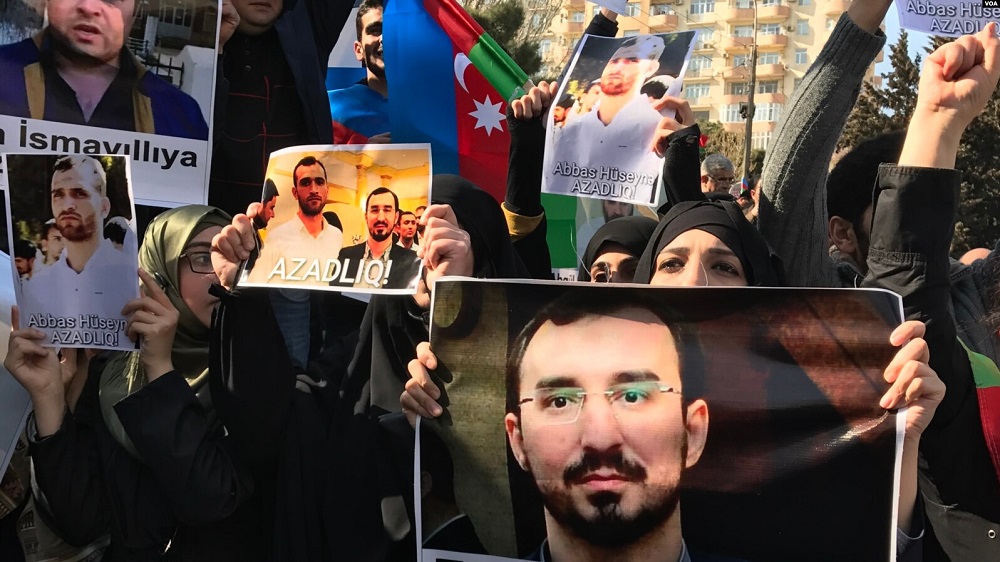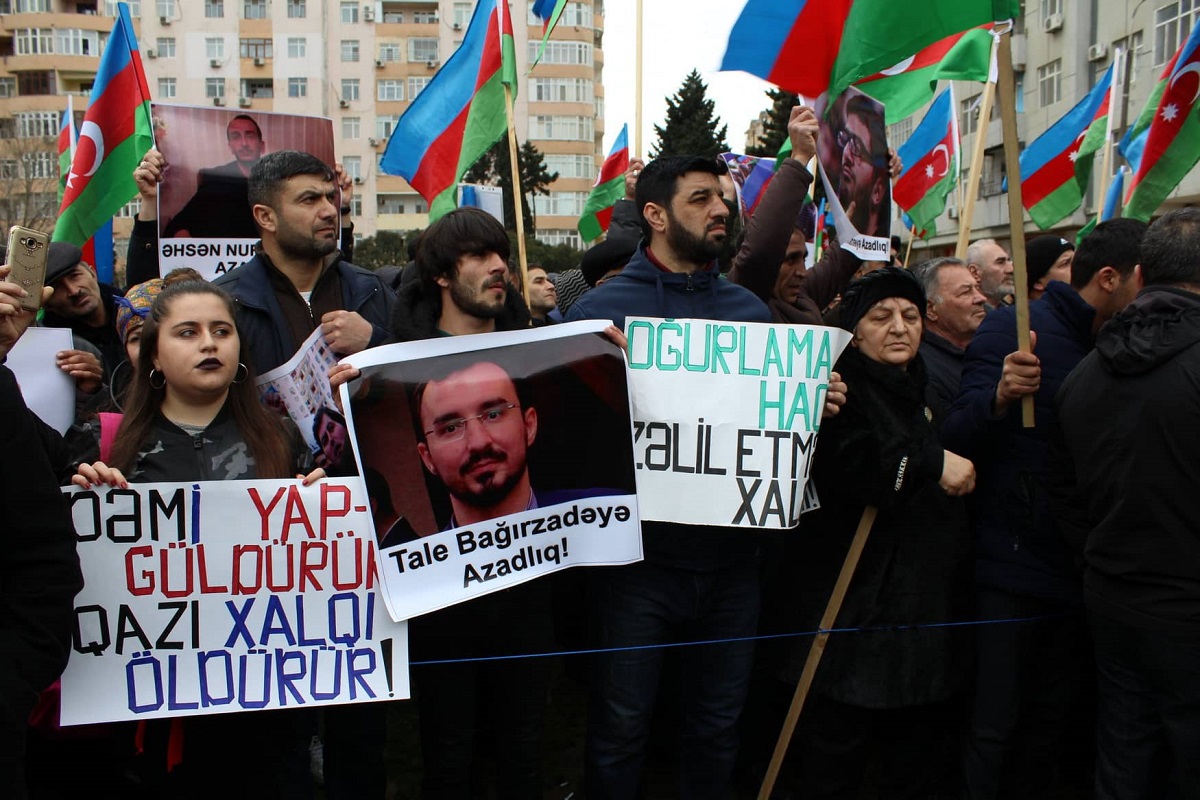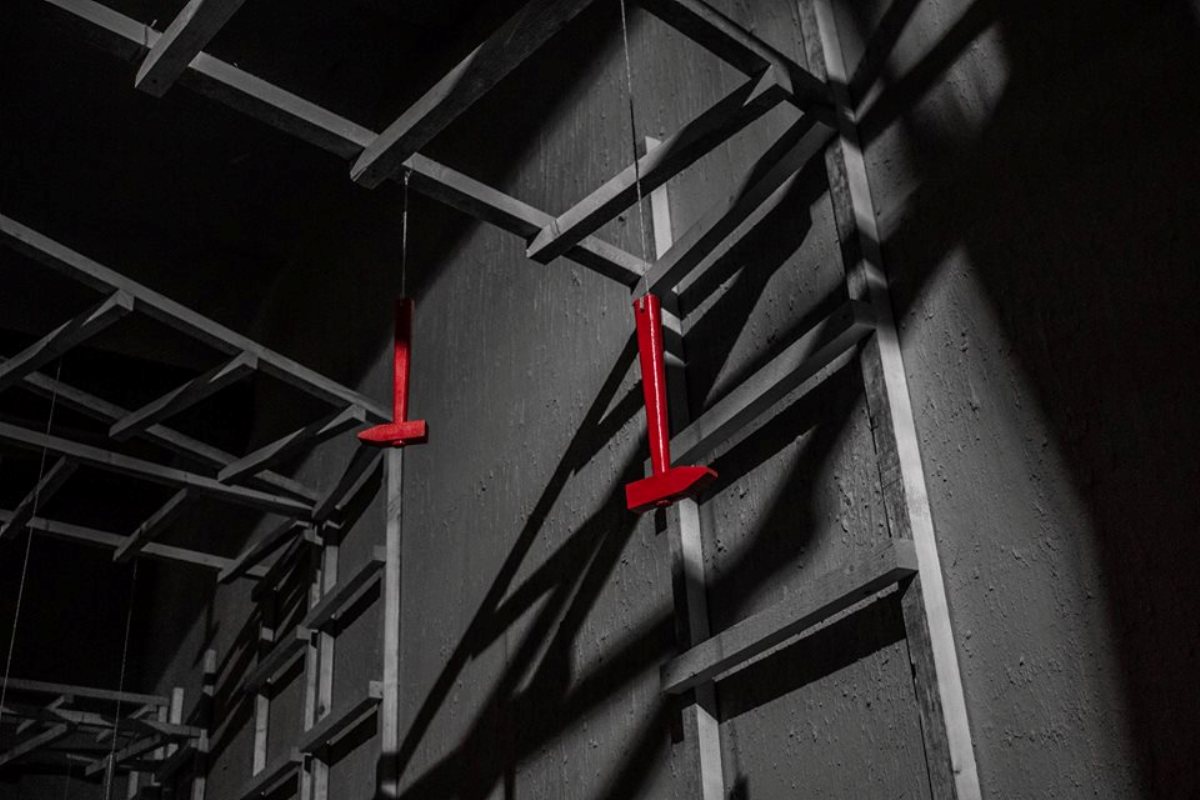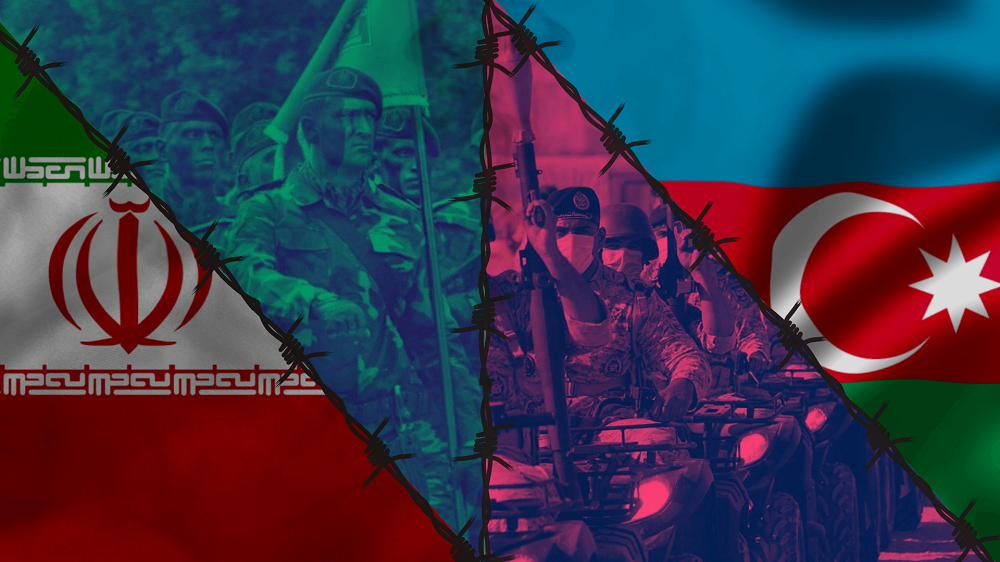"Believers are accused of drug trafficking left and right, and isolated from society"
Violation of religious freedom in Azerbaijan
How Azerbaijan ended up on a special watchlist over ‘serious violations’ of religious freedom
JAMNews presents a report prepared by Meydan TV.
- “They took upon themselves the pain of young people’s deaths” – imams as bearers of the trauma of war
- Terrorist attack at an embassy in Azerbaijan prevented
- Azerbaijan accuses Red Cross of smuggling: Lachin road completely closed
“I don’t want to be a citizen of Azerbaijan. Because as a citizen, I’m not respected — my rights are violated, I’m slandered, humiliated. They call us spies, traitors to the homeland. Do you see what we’re being accused of?” says devout Muslim Rena Aliyeva.
Since the beginning of 2023, believers in Azerbaijan have faced mass arrests. This has taken place against the backdrop of worsening Azerbaijani-Iranian relations, which escalated after the armed attack on Azerbaijan’s embassy in Iran, during which the embassy’s head of security was killed and two others were wounded.
According to relatives of the detainees, all of them were falsely accused of drug trafficking and espionage in favour of Iran.
Rena Aliyeva’s husband, Ruslan Aliyev, is a Shia Muslim. In April this year, he was arrested on charges of drug trafficking, and was later portrayed in the media as an Iranian spy.
Rena Aliyeva claims her husband was forced to confess to espionage and that he was arrested solely for his religious beliefs:
“This is the policy they’re following. If the Interior Ministry wants to present these people as spies, what do drugs have to do with it, which is what they supposedly arrested them for? A spy should have a passport, many different ID documents, should speak several languages, should be educated. But my husband is a simple, uneducated man. They say he’s a traitor to the homeland — but what exactly has he done that’s treasonous? He doesn’t hold any position, doesn’t work for the authorities — what kind of information could he possibly have to pass on to anyone?”
“I decided — and court has no say”
On 16 May, Azerbaijani law enforcement issued a joint statement claiming that Rufulla Akhundzade and his son Almursal Akhundzade, who allegedly collaborated with Iranian intelligence, had developed a secret plan to organise an armed uprising and assassinate officials, aiming to establish a religious state called “Kerima.”
According to the statement, the plan involved creating secret groups on WhatsApp and Telegram. Ruslan Aliyev was arrested as a participant in one such group, called “Qisas 313” (“Vengeance 313”).
Rena Aliyeva says her husband, a piano repairman, joined the group solely to express his protest against the mass arrests of believers. He has never met Rufulla or Almursal Akhundzade personally.
“There hasn’t even been a trial, and yet the Interior Ministry has already declared him a spy. So the ministry is basically telling people it doesn’t care about justice. Then why even bother with the courts? How can such a mistake be allowed? It happens because they don’t respect us. The ministry is essentially saying: ‘Well, let’s say you catch me in a mistake — so what? I’m the Ministry of Internal Affairs. I decided, and the court has no say.’”
According to estimates by independent human rights defenders, over 500 believers are currently under arrest in Azerbaijan, 34 of whom are members of the Muslim Unity Movement (MUM), founded in 2015. This includes the movement’s leader Taleh Bagirzade and his deputy Abbas Huseynov.
MUM board member Agha-Ali Yahyayev links the recent wave of arrests to rising tensions between Azerbaijan and Iran and views it as targeted pressure specifically against Shia Muslims.

“We will continue our struggle through legal means and are currently focused on drawing the attention of international organisations. Hundreds of believers are being falsely accused, and for years we and our families have endured the bitterness and weight of these charges,” said Yahyayev.
“He was threatened with rape using a truncheon, a bottle”
Mirtogfig Huseynov, who was arrested in December last year on charges of drug trafficking, is also a member of the “Muslim Unity” movement. According to his father, Mirdjalal Huseynov, he received a call from an unknown number before the arrest, during which he was asked about his son’s religious beliefs:
“They asked, ‘Are you Mirtogfig’s father?’ I said yes. ‘Is your son a Shia? – Yes. – Does he perform namaz? – Yes.’ The questions seemed suspicious to me, and then my son disappeared. Later I found out that he had been arrested.”
Mirdjalal Huseynov claims that his son was subjected to violence during his detention and was threatened with rape in order to force a confession:
“When I saw my son, he was in bad shape. I asked what had happened. At first he was ashamed, but later he told me that they had threatened to rape him with a truncheon, with a bottle, and that he was forced to sign a confession.”
In a comment to Meydan TV, Interior Ministry spokesman Elshad Hajiyev denied the father’s accusations, saying they were defensive in nature.
“If even nicotine, let alone drugs, is found in my son’s system, I won’t defend him. Why are they doing this to us? What have we done to this state? The country is ruled by the law of the jungle. There is no such thing as constitutional rights. Of course, we live in a legal state, we have rights, but our rights are trampled. We are completely alone, left to fend for ourselves — no one protects us,” said Mirdjalal Huseynov.
Member of the parliamentary committee on public associations and religious institutions, MP Jeyhun Mammadov, stated that the arrests of believers are carried out by law enforcement solely for security reasons. He believes there is no need at this time to bring the issue before parliament.
On 15 May, the US State Department published its 2022 report on the state of religious freedom worldwide.
In line with the International Religious Freedom Act, Azerbaijan — along with Turkey, Egypt, Indonesia, Iraq, Kazakhstan, Malaysia, Sri Lanka and Uzbekistan — was added to the Special Watch List for “serious violations” of religious freedom.
The section on Azerbaijan describes the overall state of religious freedom in the country as negative.
It notes that the Azerbaijani government has tightened control over all forms of religious activity.
According to information from non-governmental organisations, 19 people were arrested last year for religious activity, most of them members of the “Muslim Unity” movement.
“When relations between two states deteriorate, innocent people pay the price”
Recently, the authorities have adopted an especially aggressive and repressive stance toward religious believers, says human rights defender Rufat Safarov, who monitors the arrest of Shia Muslims:
“Believers are being accused left and right of drug trafficking and cut off from society because they share photos on social media of senior Iranian military, cultural and religious figures. Because they disagree with government policy. Sadly, when relations between two states worsen, it’s the innocent who suffer.”
According to Safarov, the legal defence of believers in Azerbaijan is also inadequate. At times, society even justifies such arrests:
“I’m not saying that spy networks and potential traitors have never existed on the fringes of Azerbaijan — they have. For years, Iran has been deeply interested in expanding its intelligence network in Azerbaijan. But the Azerbaijani authorities and pro-government media label people as Iranian spies even when they’re charged with drug offences. So the question is: if this person is a spy, show us proof and let us judge; but if they’re a drug dealer, what does that have to do with espionage?”
The human rights defender also commented on the broader issue of violations of religious freedom in the country:
“Article 18 of the Constitution of the Republic of Azerbaijan states that religion is separate from the state. Without a doubt, we have always supported the secular model of governance. But today we see that political and legal institutions, as well as the central executive authority, are interfering in religious affairs. The appointment of imams and akhunds to religious communities and mosques is handled by the State Committee for Religious Affairs. And looking at this practice, how can we claim that the state is not interfering in religion?”
This is not the first instance of mass arrests of believers in Azerbaijan. There were also the so-called “Nardaran” and “Ganja” cases.
“Nardaran case”
On 26 November 2015, law enforcement carried out an operation in the village of Nardaran near Baku, a community predominantly made up of religious residents.
According to eyewitnesses, during prayer, “men in black masks” stormed the home of Haji Taleh Bagirzade, the leader of the Muslim Unity Movement. Two police officers and four local residents were killed, and more than 60 people were arrested.
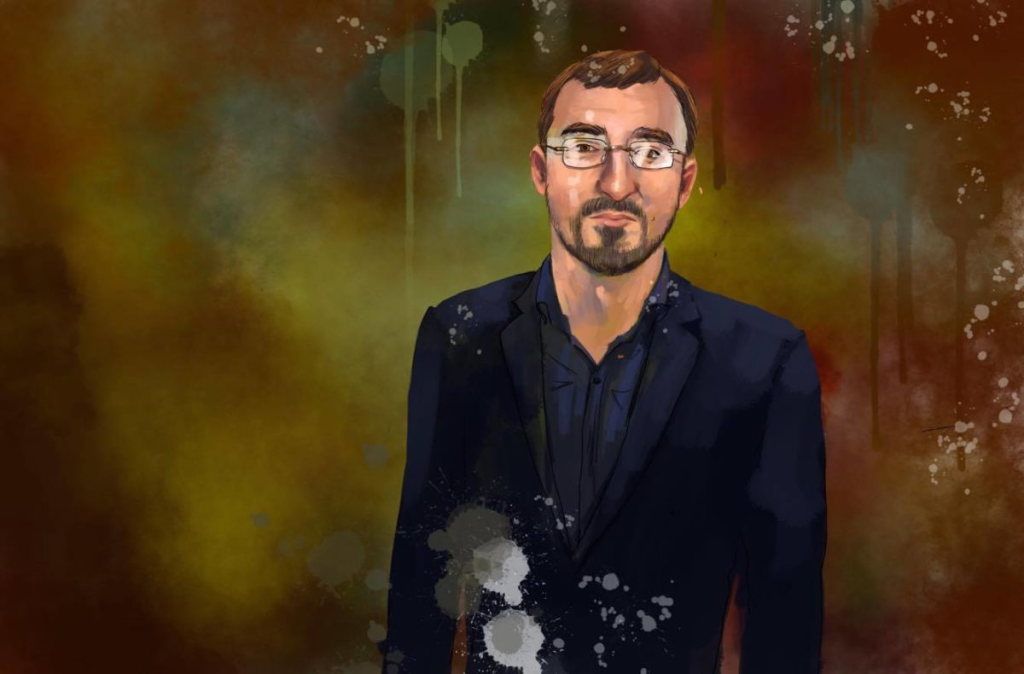
aw enforcement agencies issued a joint statement claiming that large quantities of weapons and ammunition were seized from the house, though no footage from the operation was released to confirm this.
Most of those detained during the raid stated that they were forced to sign pre-written confessions under torture.
Lawyer Fazil Namazli, who represented some of the accused, said he had never before encountered such brutal torture as that inflicted on the defendants in the “Nardaran case.”
In his view, Haji Taleh Bagirzade was arrested because he openly criticised the government.
International organisations have recognised Bagirzade as a “prisoner of conscience.”
But the arrests did not stop there — following 26 November, additional members of the Muslim Unity Movement and other believers were detained in Baku and the regions.
“Ganja case”
On 3 July 2018, there was an armed attack targeting the former head of Ganja’s executive authority, Elmar Valiyev, and a police sergeant. A local resident, Yunis Safarov, was arrested on suspicion of carrying out the attack. Law enforcement agencies claimed it was a terrorist act and that Safarov’s main goal was to establish an Islamic state in Azerbaijan governed by Sharia law.
A week later, on 10 July, unrest broke out in Ganja. According to official reports, a radical religious group of 150–200 people attempted to stage a protest that day.

It was also reported that more than 70 people were arrested.
The parents of those detained insist their children were punished unjustly.
Some human rights defenders have pointed out serious legal violations in the “Ganja case”.
Human rights activist Oktay Gulaliyev, who investigated the events, described the arrests as politically motivated.
Escalation of Azerbaijan–Iran relations
The latest wave of mass arrests of religious believers in Azerbaijan began in January 2023, following the attack on the Azerbaijani embassy in Iran.
The attack took place on 27 January. The head of the embassy’s security service was killed, and two of his subordinates were wounded.
The President of Azerbaijan demanded a swift investigation into the terrorist act and the punishment of the perpetrators.
In turn, Azerbaijan’s State Security Service announced that a criminal case had been opened in connection with the attack.
Following this, the Interior Ministry reported the detention of more than 45 “Iranian spies,” but no details about the operation were made public. According to the relatives and lawyers of the detainees, they were charged with drug trafficking.
On 1 February, the Interior Ministry again released information about a special operation during which 39 people were arrested for allegedly carrying out sabotage and subversive activities “under religious cover.” However, the public was given no information about who these people were or under which specific articles they were charged.
On 12 March, the State Security Service, the Interior Ministry, and the General Prosecutor’s Office made the first official statement regarding the operation targeting religious believers. It was reported that 32 people had been arrested that day. They were charged with various offences, ranging from espionage to drug trafficking, though details remain undisclosed.
Relatives of the detained believers say they will fight to the end. At the same time, they lament the lack of a fair judicial system in the country and therefore hold little hope. From time to time, they stage protests against the unlawful arrests.










